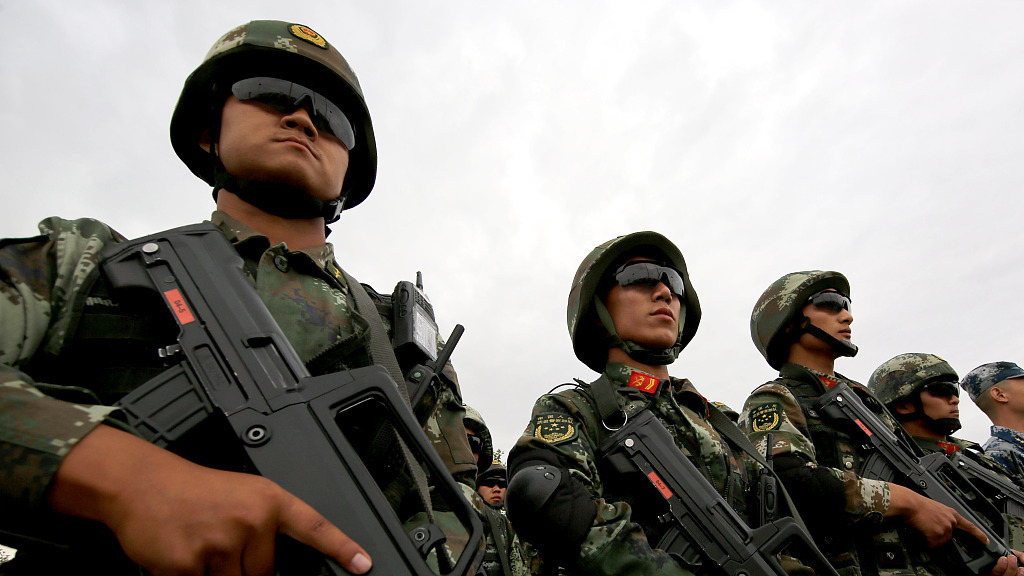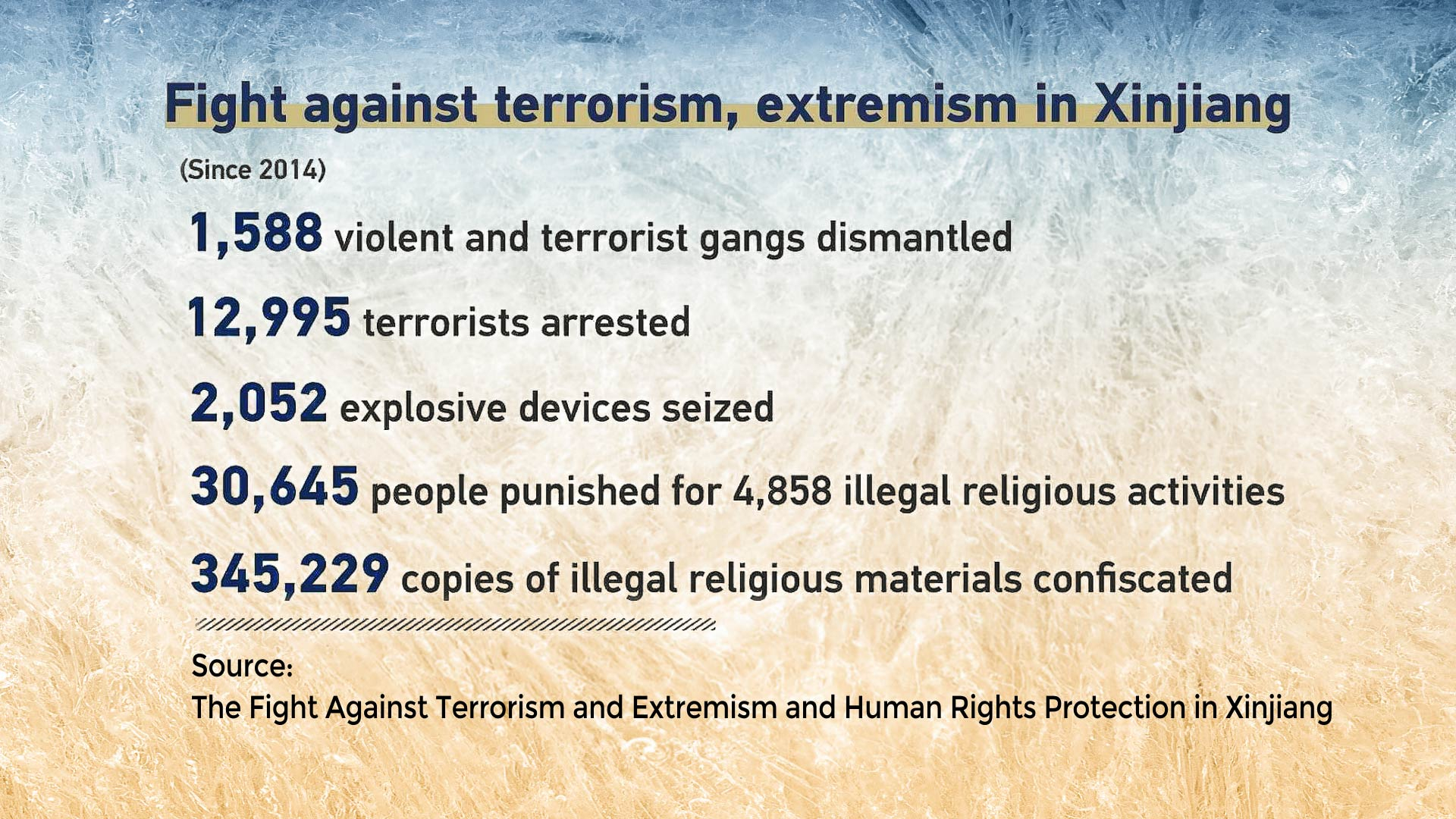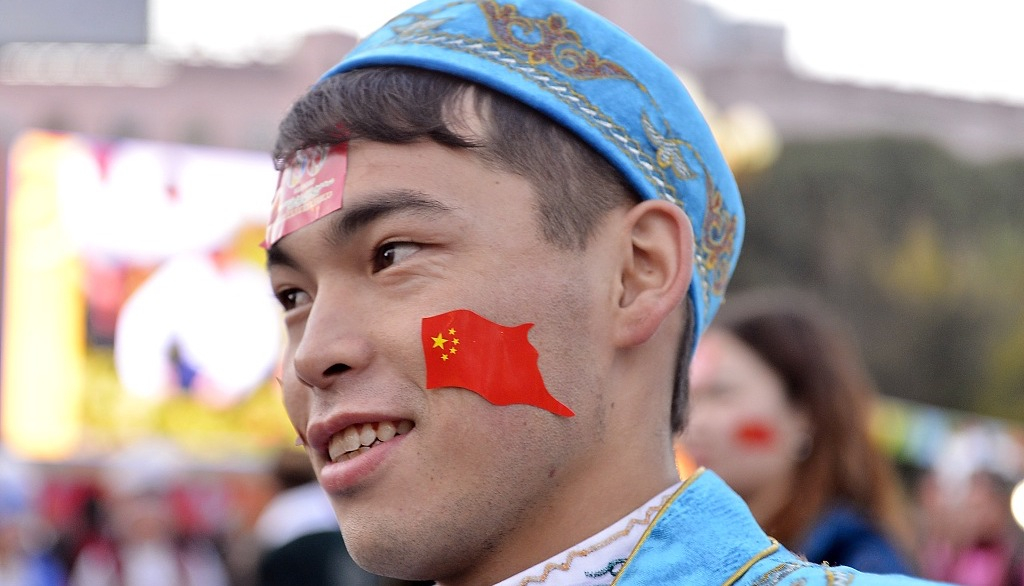
18:52, 25-Mar-2019
How effective are China's 'preventive' anti-terrorism efforts?

China's State Council Information Office on Monday issued a white paper on the fight against terrorism and extremism and human rights protection in Xinjiang.
Victor Gao believes the white paper is designed to set the record straight, especially at a time when "international western media" have been very negative in reporting about the realities in China. He thinks there is an attempt in the western media to try to depict the situation in a very negative way which is very untrue and very inaccurate.
The white paper is putting all the facts together on the table so that everyone can see. It also tries to elaborate on the real reason the real realities on the ground.
Why is Xinjiang vulnerable against terrorism?
Xu Qinduo traces back the trend of radicalization in Xinjiang. "The situation has worsened since 1990 until 2001 when the 9/11 terror attack against the U.S. happened. Since that time, the radicalization or the spread of terrorism has been to basically every corner of the world. And China is not exempt from that. In Xinjiang particularly, young people got radicalized through the Internet."
Victor Gao points out that Xinjiang borders with Afghanistan and for decades other terrorist activities have taken place in Xinjiang. He mentioned that there is a spillover of such terrorist forces from Afghanistan into Xinjiang. There are Uygur fighters fighting in Afghanistan against American soldiers and NATO soldiers. Some of these soldiers have been arrested by the Americans and were put into Guantanamo for everyone in the world to see.

Input Words
Input Words
He says that anyone who denies that there is infiltration from Afghanistan into Xinjiang for the terrorist groups is really denying the realities.
China's 'preventive' solution to terrorism
The white paper highlights that China is giving top priority to a preventive counterterrorism approach.
Xu Qinduo believes the approach is effective up to now. He calls it the "holistic" approach, just like traditional Chinese medicine. In traditional Chinese medicine, if you have a headache, you don't just get treated on your head, instead, you try to improve your overall wellness.
"The Chinese approaches are often state-led and state-organized. That's part of the reason why the western media depicts this as being forced."
Xu gives two examples of successful Chinese state-led campaigns. China raised the country's literacy level and lifted 800 million people out of poverty over the past forty years. He's confident that these efforts in Xinjiang will produce similar results.
The white paper stresses that China respects and protects human rights in accordance with the principles of its Constitution.
Protection of human rights in Xinjiang

Victor Gao says that when we talk about human rights, one of the most important basic rights is to live in peace and in safety. If you have to worry about being attacked, or your life being taken away, then your human rights will be extinguished in a sense.
Victor gives the example of kids' right to education. "I would say no one should prevent or disallow a boy or a girl for example from going to school and it happens in many parts of Xinjiang where some families being influenced by these extreme forces actually prevent their kids from going to school."
"I think this kind of behavior is no longer an exercise of freedom of human rights. This is a violation of kids' rights to study and going to school. And I think we as a society need to be mobilized to make sure that every kid in China has the right and will exercise the right to go to school to study."
CGTN's anchor Liu Xin summarizes that you don't hear about such rights being infringed upon where you read about stories about Xinjiang in Western mainstream media.
As the white paper illustrates, there are a lot of other invisible efforts to try to protect the rights of not just the Uygur people but all of the ethnic groups in Xinjiang.
SITEMAP
Copyright © 2018 CGTN. Beijing ICP prepared NO.16065310-3
Copyright © 2018 CGTN. Beijing ICP prepared NO.16065310-3